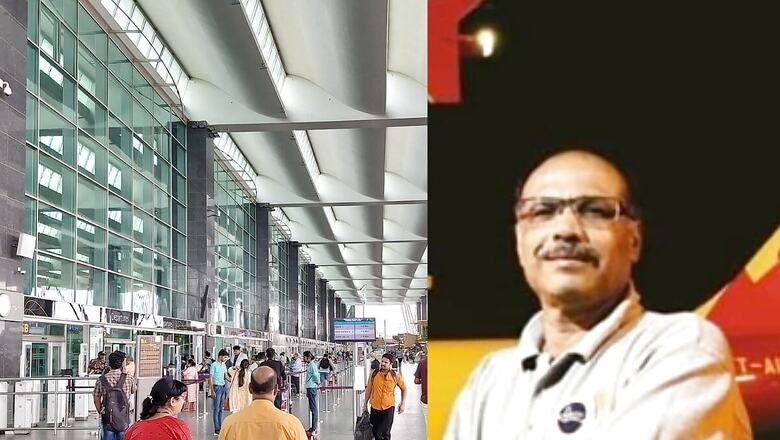
views
The Karnataka government’s dream to build a second airport in Bengaluru is yet to take wings, but the plan has been endorsed by Captain GR Gopinath, the founder of Air Deccan. Calling it “absolutely necessary and as obvious as daylight,” the aviation expert added that along with building the airport, there must also be healthy competition for better utility of services and customer-friendly pricing.
“Just like airlines compete with each other, we must also have airports compete with each other. It is good and healthy competition, it will regulate monopoly, and it gives you better utility of service and lower prices. Ultimately, people will benefit from it,” said Gopinath in an exclusive interview with News18.
Cities are growing at a quick pace and metros like Delhi, Mumbai, and Bengaluru are growing to be mega-cities. The population of Bengaluru is three times more than that of Norway. There is a need to have airports, not just two, maybe even three if necessary to service the city and the people travelling across, Gopinath said.
‘Bengaluru Should Grow in All Directions’
He also spoke of how cities like Bengaluru should not grow in a unipolar direction, but in all directions. “Presently, if a person staying in Electronic City in southeast Bengaluru has to catch a flight, he needs to travel 3 hours to get to Kempegowda International Airport Bengaluru (KIAL), which is in North Bengaluru’s Devanahalli. A city should grow in all directions and there should be equitable growth and airport connectivity should also help link this growth,” Gopinath said.
Gopinath spoke of how London city has six international airports and has grown in all directions; Bengaluru has the potential to do so as well, and people should benefit from healthy competition and easy accessibility.
“Even in mega-cities, you need low-cost airports so that people can get on and off without having to pay a premium for food or their shopping. You also need to create low-cost airlines which are clean, efficient, and operate from cost-efficient terminals so that all people have access to this form of transport. But the bigger problem that needs to be addressed is breaking monopoly. Monopoly creates monsters,” added the aviation expert.
‘Companies Try to Monopolise’
The aviation industry leader spoke of how companies tend to monopolise airport management and tend to create cogs in the wheel, adding this can cause severe inconvenience and hinder growth for a city.
Gopinath recalled the days when Air Deccan used to operate and they wanted to start a flight to Bidar, a region in northernmost Karnataka that has limited accessibility. Typically, it would take 15 to 16 hours to travel there. People would fly to Hyderabad and then take the road to reach Bidar, which would turn out to be expensive. Gopinath spoke of how he was offered a civilian enclave by the Air Force in Bidar like in Goa to operate flights to the remote region. “But the company operating the airport in Hyderabad said that no airport can be built in the range of 150 km and I could not operate in Bidar. Those operating the Hyderabad airport put a spoke in the wheel and that affected the progress of providing a backward area of a neighbouring state with new opportunities and development,” he said.
Gopinath also stressed that more and more players should participate in building airports.
“Delhi is another classic example of where different entities are handling airports and will make for healthier cometition and competitive pricing. Noida is being developed by Flughafen Zürich AG (Zurich Airport) and GMR is handling Selhi,” he said.
The founder of Air Deccan once again reignited the need to open the HAL airport located in the heart of the city of Bengaluru for civilian operations. A PIL was filed by him along with Biocon founder Kiran Mazumdar Shaw seeking to continue operations of the HAL airport while operating KIAL. “The problem of people reaching airports will be reduced if you have one in the region they live in. In London, you have the main airport in the heart of the city,” he explained.
“I welcomed the new airport at Devanahalli when the proposal came through, but the old airport at HAL should not have been closed. Public airports must compete with private airports. You know how they opposed Air India when a private operator got his licence. For example, Jet Airways was reluctant to allow others to continue. But both have to work at the same pace so that they are mutually beneficial and keep checks and balances. Governments should realise that just like they privatised Prasar Bharati, BSNL and allowed private competition, it will play a key role in better delivery of services to people, at a competitive cost,” Gopinath said.
“More than blaming politicians, you must blame entrenched businesses. They are the ones who cause more trouble and try to monopolise. Let there be open competition between private companies and ones run by the government, be it airports or airlines, ultimately people will benefit,” he observed.
KIA Third Busiest Airport in India
According to a statement from BIAL, during FY 2023-2024, Kempegowda International Airport Bengaluru (KIAB/BLR Airport) witnessed the highest-ever annual passenger traffic and cargo numbers, with a total of 37.53 million passengers traversing through its terminals. The airport catered to 32.86 million domestic passengers and 4.67 million international passengers during this period.
KIA is the third busiest airport in India after Delhi and Mumbai and in the past year has handled 37.5 million passengers and over 400,000 tonnes of cargo. It is expected to reach its peak passenger capacity by 2033 and maximum cargo capacity by 2040, say ministry sources.
“We have to acquire close to 5,000 acres of land to develop and build. Land parcel acquisition of such large size is not easy, and we need to identify the areas that will benefit people as well as help us get the required place for the infrastructure,” said a source in the ministry.
How Karnataka Govt is Preparing For a Second Airport in Bengaluru
According to plans made by the Karnataka government, state minister for Infrastructure, MB Patil, said the city needs a second airport “to develop an industrial ecosystem beyond Bengaluru.” The contract, when the terms were signed to establish the Devanahalli airport, now called Kempegowda International Airport, stipulated that no other airport could be constructed within a 150-kilometre radius until 2033. With nine years to go, the state plans to start its preparations to build a second airport to handle the growing needs of the city.
“The current airport is projected to reach its peak passenger handling capacity by 2033 and its maximum cargo handling capacity by 2040. If we prioritise passenger load, areas such as Sarjapura and Kanakapura Road are strong contenders. However, if connectivity to the existing airport is the focus, places like Tumakuru and Dabbaspet will take the lead,” Patil said.




















Comments
0 comment